Introduction to INTU Architecture
With INTU, Flexibility is power. Our architecture is highly customizable to enable projects to connect on-chain without compromising on their user experience or their product.
In this section, we will introduce the various components of the INTU system, and elaborate on the powerful flexibility and customization available to developers for different applications. This includes Account Participants, Communication Channels, Data Storage, Coordination, and Target On-chain Application.

Account participants or factors control the unique dynamic keyshares created by the decentralized account generation process. These include end-users factors, such as web3 wallets or social log-in services, as well as non-user factors such as Co-signers or hosted services running the INTU SDK.
In order to form valid signatures for on-chain interactions, these factors must coordinate and communicate with each other. By default, the SDK will use INTU’s smart contract system to provide a resilient, permissionless, and decentralized channel for factors.
All communication and data stored on-chain is secured using INTU’s novel encryption protocol, which requires no additional keys or passwords stored on local devices.
The smart contract system also facilitates account recovery, and safely serves as a ultimate source of truth for using and managing INTU accounts.
Alternative channels of communication and storage can also be defined by the application for a variety of use cases or requirements.. Some examples include:
-
Private channels of communication for Enterprise security
-
Private or Permissioned blockchains
-
P2P communications protocols, including decentralized databases or LibP2P
-
Private, on-prem, or self-managed cloud-based storage
The end result is always the same: A static public address for an EVM-compatible Externally-Owned Account, and Signatures for EVM-verification.
| Term | Definition |
|---|---|
| Orchestration Network | The blockchain network the INTU account was originally deployed. This network serves as a bulletin board, coordinating and communicating between participants, as well as the default data storage layer. INTU smart contracts are deployed here. |
| Target Network | The network a signed message or transaction is intended for. Can include, but does not need to be, the Orchestration Network. |
| Communication Channel | By default, the orchestration network. Alternative channels can be defined by applications to include P2P Protocols, VPN-gated Networks, Cloud databases, or other Chat protocols and applications. |
| Data Storage | By default, the orchestration network. Alternative data storage can be defined by applications to include decentralized storage networks, cloud storage, local storage, on-prem solutions, HSM-enabled solutions, and more. |
| Gateway / RPC | Can be defined by a wallet, or the INTU SDK / Co-Signer directly. Can support multiple gateways for redundancy, as well as gateways optimized for different target networks. |
| Account Factor & Participant | The service, wallet, or account to which an INTU keyshare is assigned. These constitute 1-of-n participants in an INTU account where m-of-n is required to form a signature. Ultimately, these are always an asymmetric keypair, which can be abstracted to an external authorization service, such as a SSO provider or JWT. |